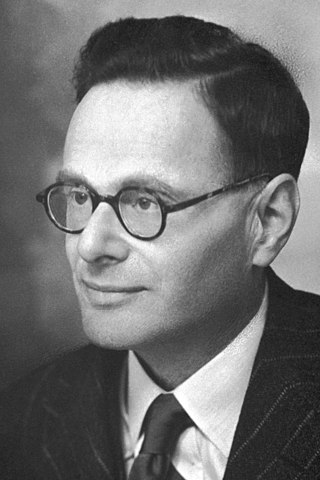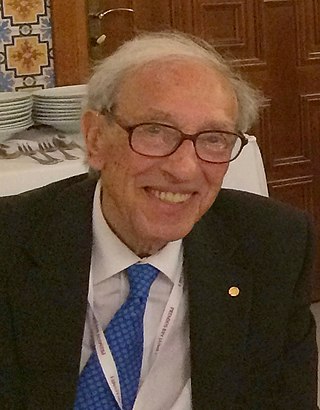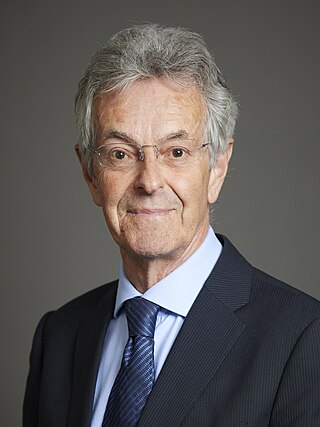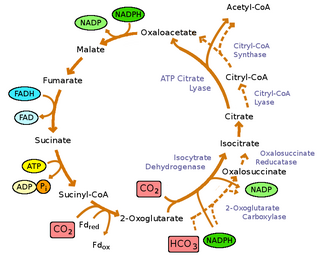Related Research Articles

The citric acid cycle—also known as the Krebs cycle, Szent–Györgyi–Krebs cycle, or TCA cycle —is a series of biochemical reactions to release the energy stored in nutrients through the oxidation of acetyl-CoA derived from carbohydrates, fats, proteins, and alcohol. The chemical energy released is available in the form of ATP. The Krebs cycle is used by organisms that respire to generate energy, either by anaerobic respiration or aerobic respiration. In addition, the cycle provides precursors of certain amino acids, as well as the reducing agent NADH, that are used in numerous other reactions. Its central importance to many biochemical pathways suggests that it was one of the earliest components of metabolism. Even though it is branded as a "cycle", it is not necessary for metabolites to follow only one specific route; at least three alternative segments of the citric acid cycle have been recognized.
The urea cycle (also known as the ornithine cycle) is a cycle of biochemical reactions that produces urea (NH2)2CO from ammonia (NH3). Animals that use this cycle, mainly amphibians and mammals, are called ureotelic.
Pyruvic acid (CH3COCOOH) is the simplest of the alpha-keto acids, with a carboxylic acid and a ketone functional group. Pyruvate, the conjugate base, CH3COCOO−, is an intermediate in several metabolic pathways throughout the cell.

Cellular respiration is the process by which biological fuels are oxidized in the presence of an inorganic electron acceptor, such as oxygen, to drive the bulk production of adenosine triphosphate (ATP), which contains energy. Cellular respiration may be described as a set of metabolic reactions and processes that take place in the cells of organisms to convert chemical energy from nutrients into ATP, and then release waste products.

Sir Hans Adolf Krebs, FRS was a German-British biologist, physician and biochemist. He was a pioneer scientist in the study of cellular respiration, a biochemical process in living cells that extracts energy from food and oxygen and makes it available to drive the processes of life. He is best known for his discoveries of two important sequences of chemical reactions that take place in the cells of nearly all organisms, including humans, other than anaerobic microorganisms, namely the citric acid cycle and the urea cycle. The former, often eponymously known as the "Krebs cycle", is the sequence of metabolic reactions that allows cells of oxygen-respiring organisms to obtain far more ATP from the food they consume than anaerobic processes such as glycolysis can supply; and its discovery earned Krebs a Nobel Prize in Physiology or Medicine in 1953. With Hans Kornberg, he also discovered the glyoxylate cycle, a slight variation of the citric acid cycle found in plants, bacteria, protists, and fungi.
Krebs is the German and Danish word for "crab" and "cancer". It may refer to:

Edmond Henri Fischer was a Swiss-American biochemist. He and his collaborator Edwin G. Krebs were awarded the Nobel Prize in Physiology or Medicine in 1992 for describing how reversible phosphorylation works as a switch to activate proteins and regulate various cellular processes. From 2007 until 2014, he was the Honorary President of the World Cultural Council. At the time of his death at age 101 in 2021, he was the oldest living Nobel Prize laureate.

John Richard Krebs, Baron Krebs, FRS is an English zoologist researching in the field of behavioural ecology of birds. He was the principal of Jesus College, Oxford, from 2005 until 2015. Lord Krebs was President of the British Science Association from 2012 to 2013.

120 Days was a Norwegian rock band.

The reverse Krebs cycle is a sequence of chemical reactions that are used by some bacteria and archaea to produce carbon compounds from carbon dioxide and water by the use of energy-rich reducing agents as electron donors.
Willy Ovesen was a Norwegian civil servant.

Nina Kessler is a Dutch racing cyclist, who currently rides for UCI Women's Continental Team EF–Oatly–Cannondale. She competed in the 2013 UCI women's team time trial in Florence. At the 2015 Dutch National Track Championships she became Dutch champion in the women's Madison together with Kirsten Wild. She won the points classification at the 2016 La Course by Le Tour de France.
Lensworld–Kuota is a former professional cycling team based in Belgium, which competed in elite road bicycle racing events such as the UCI Women's Road World Cup.
Nina Gulino is an Italian professional racing cyclist. She rides for the S.C. Michela Fanini Rox team.
The YF-115 is a Chinese liquid rocket engine burning LOX and kerosene in an oxidizer-rich staged combustion cycle. A high efficiency/high thrust environmental-friendly rocket engine was always an objective within Programme 863. Development began in the 2000s, along with its sibling, the bigger YF-100, which would power the LM-5, LM-6 and LM-7 boosters and first stages. Testing was directed by the China National Space Administration (CNSA) commencing in 2005. Development works are mainly carried out by the Xi'an Aerospace Propulsion Institute. It will be used as upper stage engine for China's next generation of medium and light environmental-friendly launch vehicles, namely the Long March 6 and the Long March 7. During early 2012, the engine system successfully passed vacuum testing. It is China's first upper stage rocket engine to adopt the staged-combustion cycle.
The RD-0255 is a propulsion module composed of an RD-0256 main engine and a RD-0257 Vernier thruster. Both are liquid-fuel rocket engines, burning a hypergolic mixture of unsymmetrical dimethylhydrazine (UDMH) fuel with dinitrogen tetroxide oxidizer. The RD-0256 main engine operates in the oxidizer rich staged combustion cycle, while the vernier RD-0257 uses the simpler gas generator cycle. It was used on the R-36MUTTKh (GRAU:15A18) and R-36M2 (GRAU:15A18M). Subsequently, it has been in the Dnepr second stage and as of 2016 it is still in active service.

Kirstie Klingenberg is a New Zealand track cyclist and former rower. She competed at the 2020 Summer Olympics, in Women's sprint, and Women's team pursuit.
Ovesen is a surname. Notable people with the surname include:
Eugene J. "Gene" Ovesen was an American curler from Superior, Wisconsin.
Andy Schleck–CP NVST–Immo Losch is a Luxembourg-based road cycling team, that was formed in 2018 for riders under the age of 18. The following year, the team moved up to a national level, before registering with the Union Cycliste Internationale (UCI) as a Women's Continental Team for the 2021 season.
References
- ↑ "Nina Krebs Ovesen". ProCyclingStats. Retrieved 24 March 2015.